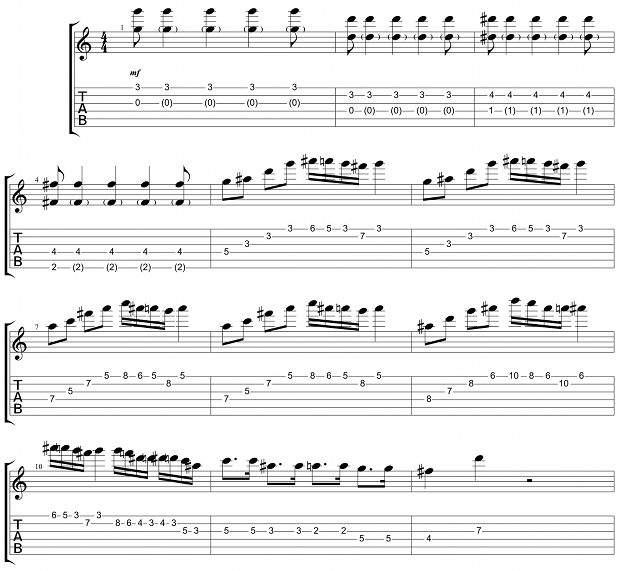Bent Out of Shape: Learning Mozart's Symphony No. 25 in G Minor, Part 1
All the latest guitar news, interviews, lessons, reviews, deals and more, direct to your inbox!
You are now subscribed
Your newsletter sign-up was successful

After the positive response to my previous series, "Learning Paganini's 16th Caprice (Parts 1 to 3)," I thought it would be fun to teach you another classical piece.
I spent some time looking for something suitable and decided on Mozart's Symphony No. 25 in G Minor.
Unlike my previous series of lessons (where I already knew how to play the piece), I'll be learning the piece with you, section by section. I almost prefer this piece over the Paganini simply because it's a lot easier technique-wise and much easier to play at the correct tempo.
So let's begin!
For this first section, there's nothing too tricky technique-wise — and we won't learn too much. The piece begins with a very dark-sounding theme based around the harmonic minor scale.
Although it's very simple, it raises an issue we're likely to encounter while learning this piece. Unlike Paganini, this is meant to played with multiple instruments, which, at times, might be difficult to replicate on a single guitar. The introduction should be played using a hybrid picking technique; use your second finger to play the higher-octave notes while the lower octave rings out underneath.
The next part is three arpeggios played with the same motif. Theory-wise it's relatively simple beginning with G minor followed by A diminished and Bb major, which is I-II-III chords within the key of G minor.
All the latest guitar news, interviews, lessons, reviews, deals and more, direct to your inbox!
In terms of technique it's also very simple. You can either sweep or alternate pick the arpeggios as they are not very fast. Each shape has the same pattern, so once you've mastered the first arpeggio the rest are very easy. Following the arpeggios, there is a short descending linear scale pattern which probably is the toughest part as you need to have a fairly good alternate picking technique to execute accurately.
Once you've memorized each part of this first section, you should attempt to play it through at a slow tempo. I would suggest 100 bpm to begin with — but start at whatever tempo you feel comfortable with. Once you've mastered the section at this tempo, increase by 10 bpm and repeat this process until you reach the target speed of 160 bpm.
In the video below, I'm demonstrating the first section. I hope this helps!

Will Wallner is a guitarist from England who now lives in Los Angeles. He recently signed a solo deal with Polish record label Metal Mind Productions for the release of his debut album, which features influential musicians from hard rock and heavy metal. He also is the lead guitarist for White Wizzard (Earache Records) and toured Japan, the US and Canada in 2012. Follow Will on Facebook and Twitter.
